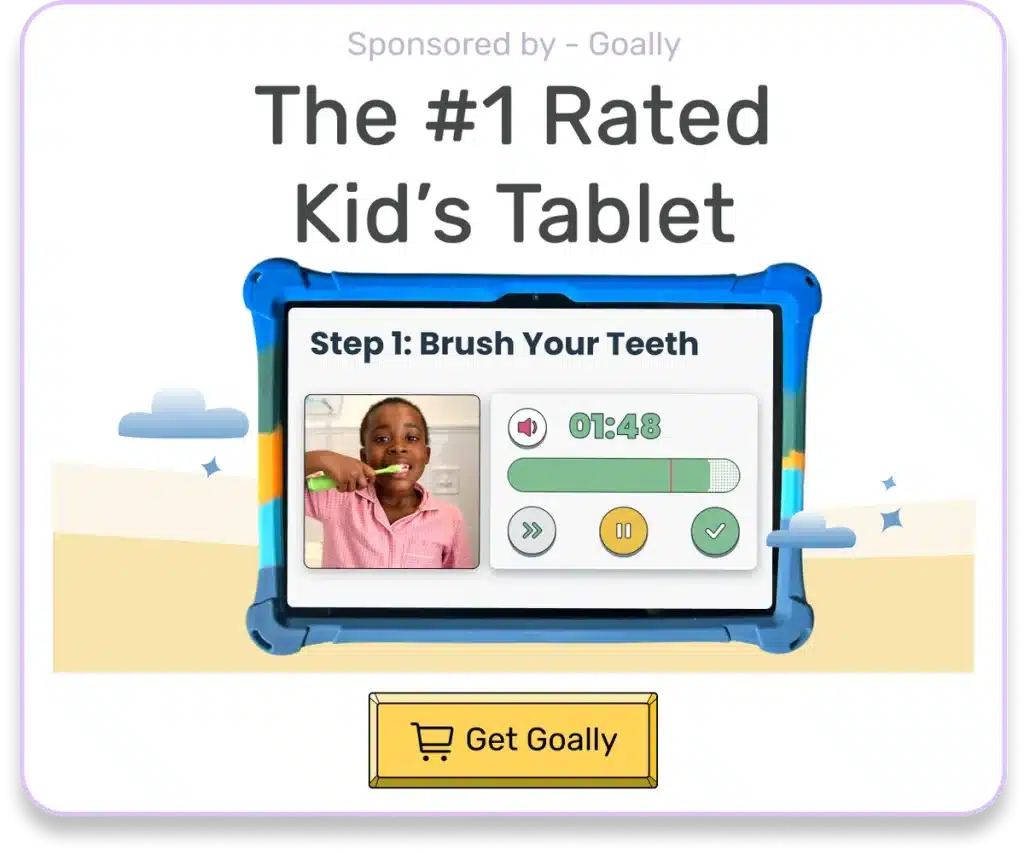If you’ve ever wondered “Is ADHD a psychiatric disorder?”, you’re not alone. As a professional working with kids, I’ve encountered this question countless times from concerned parents. ADHD, or Attention-Deficit/Hyperactivity Disorder, is indeed classified as a psychiatric disorder. It’s a neurodevelopmental condition that affects both children and adults, impacting their ability to focus, control impulses, and regulate activity levels. But there’s so much more to understand about ADHD than just its classification. In this post, we’ll explore the nuances of ADHD, its impact on daily life, and how we can better support those affected by it.
Table of Contents
What Exactly is ADHD?
ADHD is a complex neurodevelopmental disorder that affects millions of children and often continues into adulthood. It’s characterized by persistent inattention, hyperactivity, and impulsivity that interferes with functioning or development.
To better understand ADHD, let’s break it down into its core components:
- Inattention: Difficulty focusing on tasks, easily distracted, forgetfulness in daily activities
- Hyperactivity: Excessive movement, fidgeting, inability to sit still
- Impulsivity: Acting without thinking, interrupting others, making hasty decisions
These symptoms can manifest differently in each individual, which is why ADHD is often described as a spectrum disorder. Some kids might primarily struggle with attention, while others may be more hyperactive or impulsive.

Read more: Is ADHD Considered a Neurological Disorder?
Is ADHD a Psychiatric Disorder? The Classification Debate
Yes, ADHD is classified as a psychiatric disorder in the Diagnostic and Statistical Manual of Mental Disorders (DSM-5), the standard classification of mental disorders used by mental health professionals in the United States. However, this classification has been a subject of debate among professionals and advocates.
Here’s a breakdown of the key perspectives in this debate:
| Perspective | Argument |
|---|---|
| ADHD as a Psychiatric Disorder | Supporters argue that the significant impact on mental health and behavior justifies its classification as a psychiatric disorder. |
| ADHD as a Neurodevelopmental Condition | Some experts emphasize ADHD’s neurological basis, suggesting it should be primarily viewed as a difference in brain development and function. |
| ADHD as a Spectrum | This view proposes that ADHD exists on a continuum, with traits present to varying degrees in the general population. |
In my experience, understanding ADHD as both a psychiatric disorder and a neurodevelopmental condition can be helpful. This dual perspective acknowledges the clinical significance of ADHD symptoms while also recognizing the underlying neurological differences.
The Neurological Basis of ADHD
When we ask “is ADHD a psychiatric disorder?”, it’s crucial to understand its neurological underpinnings. ADHD isn’t just about behavior; it’s rooted in brain structure and function.
Research has shown several key neurological differences in individuals with ADHD:
- Neurotransmitter Imbalances: Differences in dopamine and norepinephrine levels, which affect attention and impulse control.
- Brain Structure Variations: Slight differences in the size and activity of certain brain regions, particularly in areas responsible for attention and impulse control.
- Delayed Brain Maturation: Some studies suggest that the brains of children with ADHD develop at a slower pace in certain areas.
Understanding these neurological aspects helps explain why ADHD is more than just a behavioral issue. It’s a complex interplay of brain chemistry, structure, and development that influences how a person thinks, feels, and behaves.
The Impact of ADHD on Daily Life
While the classification of ADHD as a psychiatric disorder is important for diagnosis and treatment, what truly matters to families is how it affects daily life. ADHD can have far-reaching impacts on various aspects of a child’s life:
Academic Performance
Kids with ADHD often struggle in traditional classroom settings. They might have difficulty:
- Staying focused during lessons
- Completing homework assignments
- Organizing their school materials
- Following multi-step instructions
I’ve worked with many bright students who underperform academically due to ADHD. It’s not about intelligence; it’s about how their brain processes information and manages tasks.
Social Relationships
ADHD can also affect a child’s social life. Some common challenges include:
- Difficulty reading social cues
- Impulsively interrupting conversations
- Struggling to wait their turn in games or discussions
- Becoming easily frustrated in social situations
These challenges can sometimes lead to misunderstandings or conflicts with peers, making it harder for kids with ADHD to form and maintain friendships.
Family Dynamics
Living with a child who has ADHD can be both rewarding and challenging for families. Parents might experience:
- Increased stress in managing daily routines
- Difficulty in setting and enforcing rules consistently
- Feelings of frustration or guilt
- Concerns about their child’s future
It’s important to remember that ADHD affects the whole family, and support should extend to parents and siblings as well.
Diagnosis and Treatment: A Multifaceted Approach
Given that ADHD is classified as a psychiatric disorder, its diagnosis and treatment typically involve mental health professionals. However, the approach is often multidisciplinary, reflecting the complex nature of ADHD.
Diagnosis Process
Diagnosing ADHD involves several steps:
- Comprehensive Evaluation: This includes medical exams, interviews with parents and teachers, and behavioral assessments
- Symptom Assessment: Evaluating the presence, duration, and severity of ADHD symptoms
- Ruling Out Other Conditions: Ensuring symptoms aren’t better explained by other disorders or circumstances
- Considering Co-occurring Conditions: Identifying any other mental health or learning disorders that often accompany ADHD
Treatment Options
Treatment for ADHD is typically multimodal, combining different approaches:
| Treatment Type | Description | Benefits |
|---|---|---|
| Behavioral Therapy | Teaches skills to manage behavior and improve daily functioning | Enhances self-control, improves social skills |
| Medication | Stimulants or non-stimulants to manage symptoms | Improves focus, reduces impulsivity and hyperactivity |
| Educational Support | Accommodations and strategies in school settings | Helps children succeed academically |
| Parent Training | Teaches parents effective strategies for managing ADHD behaviors | Improves family dynamics, enhances child’s behavior |
The most effective treatment plans are tailored to each child’s specific needs and regularly adjusted as they grow and their needs change.

Read more: Neurological Learning Disabilities
Beyond the Label: Embracing Neurodiversity
While ADHD is classified as a psychiatric disorder, there’s a growing movement to view it through the lens of neurodiversity. This perspective sees neurological differences like ADHD as natural variations in the human brain rather than deficits or disorders.
The neurodiversity approach emphasizes:
- Recognizing the strengths associated with ADHD, such as creativity and out-of-the-box thinking
- Adapting environments to suit different neurological profiles rather than trying to “fix” the individual
- Celebrating the unique perspectives and contributions of neurodivergent individuals
This doesn’t mean ignoring the challenges of ADHD, but rather balancing support for difficulties with appreciation for differences. Many successful entrepreneurs, artists, and innovators have ADHD and credit their success to their unique way of thinking.
Supporting Children with ADHD: Practical Strategies
Whether we view ADHD as a psychiatric disorder, a neurodevelopmental condition, or a form of neurodiversity, the goal is to support children in reaching their full potential. Here are some practical strategies I’ve found effective:
At Home
- Establish Routines: Consistent daily schedules can help manage ADHD symptoms
- Break Tasks into Smaller Steps: This makes overwhelming tasks more manageable
- Use Visual Aids: Checklists, calendars, and reminder apps can support organization
- Create a Calm Environment: Reduce distractions in study and sleep areas
At School
- Seek Accommodations: Work with teachers to implement helpful strategies like preferential seating or extended time for tests
- Encourage Movement Breaks: Short physical activities can help manage hyperactivity
- Use Assistive Technology: Tools like speech-to-text software can support learning
- Provide Clear, Concise Instructions: Break down complex tasks into simple steps
Social Skills
- Practice Social Scenarios: Role-play common social situations to build skills
- Encourage Turn-Taking Activities: Board games can help practice impulse control
- Teach Emotional Regulation: Help children identify and manage their emotions
- Foster Strengths and Interests: Encourage activities where they can shine and build confidence
Remember, every child with ADHD is unique. What works for one may not work for another, so it’s important to be patient and willing to try different approaches.
The Future of ADHD Understanding and Support
As we continue to explore the question “is ADHD a psychiatric disorder?”, it’s clear that our understanding of ADHD is evolving. Current research is focusing on:
- Genetic factors contributing to ADHD
- The long-term impact of different treatment approaches
- The potential benefits of mindfulness and other alternative therapies
- How technology can be leveraged to support individuals with ADHD
This ongoing research promises to refine our understanding of ADHD and improve support strategies for those affected by it.
Try Goally For Your Child With ADHD
Goally helps kids with ADHD stay focused and build skills. Unlike a Kindle or an iPad that kids get easily distracted on, Goally has no YouTube, no social media, no web browser, and especially no ads.
Goally uses game play as a points-based motivator for your kiddo with ADHD and helps them learn emotional regulation skills. It’s simple to set up and has an expert-informed design.

While ADHD is classified as a psychiatric disorder, it’s important to remember that it’s a complex condition that affects each person differently. By combining professional support with understanding, patience, and tailored strategies, we can help children with ADHD thrive. Whether you’re a parent, educator, or someone with ADHD yourself, remember that challenges can be overcome, and differences can be strengths. With the right support, individuals with ADHD can lead fulfilling, successful lives and make unique contributions to our world.
Resources:
- CHADD – Children and Adults with Attention-Deficit/Hyperactivity Disorder
- Understood – For learning and thinking differences
- ADDitude Magazine – Strategies and Support for ADHD & LD
FAQs about Is ADHD a Psychiatric Disorder
What is ADHD?
ADHD, or Attention-Deficit/Hyperactivity Disorder, is a neurodevelopmental disorder characterized by persistent patterns of inattention, hyperactivity, and impulsivity.
Is ADHD classified as a psychiatric disorder?
Yes, ADHD is classified as a psychiatric disorder under neurodevelopmental disorders in the DSM-5, recognizing its mental and behavioral components.
How is ADHD diagnosed?
ADHD is diagnosed through a comprehensive evaluation by a healthcare provider, which includes behavioral assessments and input from parents, teachers, and sometimes the children themselves.
What treatments are available for ADHD?
Treatment options for ADHD include behavioral therapy, medication, and educational support, all tailored to the individual needs of the child.
Can ADHD impact a child's daily life?
Yes, ADHD can significantly affect a child's performance at school, interactions with peers and family, and overall daily functioning, necessitating tailored support and interventions.

Hennah is an experienced writer and researcher, helping children with autism, ADHD, and other neurodivergent conditions. As a blog contributor for Goally, she combines her deep understanding of neurodiversity with practical advice, offering valuable insights to parents and educators.





